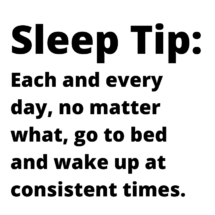Are you getting enough sleep? How about your family members? If the answer is “no,” then this message is for you.
The length and quality of a person’s sleep has a direct impact on their day-to-day executive functioning. Sleep research confirms that poor sleep leads to poor executive functioning, setting off a chain reaction of other negative outcomes for long-term health.

I’ve been seeing a lot of sleep deprived clients lately, adults and students. Students have dark circles under their eyes. Adults are struggling to pay attention. I’m hypersensitive to them because, alas, I have been struggling with getting enough quality sleep myself. Despite a very conscious maintenance of good sleep hygiene habits, even getting 7 hours of sleep a night has been evading me for months. And boy, am I feeling the negative impact of that lack of sleep on my executive functioning!
At a recent Seeing My Time training, a rehabilitation specialist told me to check out Matthew Walker on Youtube. She said he’d completely changed her views on sleep. In my desperation, I immediately watched a few of his videos and bought his book: Why We Sleep: Unlocking the Power of Sleep and Dreams. Walker is a professor of neuroscience who focuses on sleep, having started his career establishing the connection between sleep and developing Alzheimer’s Disease. His mission is to educate us on the direct correlation between the amount and quality of our sleep to both our present and future health. Let’s just say that we ignore our sleep at our own peril!
Why Sleep Matters for Our Executive Functioning and Body Health
I have long known that sleep is critical for us to memorize facts and consolidate our learning. It is also the time that our brain “cleans itself” from the accumulation of toxic chemicals brought on by stress. After reading Walker’s book, I now know those two key purposes of sleep are just the tip of the iceberg.
As part of a growing list, adequate sleep also provides these important functions:
- Recalibrates our emotional brain circuits for psychological health
- Restocks our immune system
- Prevents infection by warding off illness
- Maintains our insulin balance
- Regulates our appetite to help us control weight
- Supports the fitness of our cardiovascular system
- Lowers blood pressure.
- Makes it easier to exercise
- Helps us mollify painful memories and creates a foundation for creativity while we dream
As I read through Why We Sleep, the full power of sleep was staggering and a bit scary. It was sobering to learn that some of my sleep issues are directly tied to my aging brain. The area of the brain dedicated to activating and maintaining our deep non-dream sleep, needed for consolidating memories and body restoration, is the first part of our brain to deteriorate! Sigh. I also discovered that it is a myth that “older” people don’t need as much sleep. We do, but we have a much harder time getting the right kind of sleep as well as enough hours.
Little By Little, Change Happens
 While my aging brain is making it tough to get my restorative sleep needs met, I’m not giving up! It is taking some effort to work around my brain, but I’ve never let it stop me before! At the end of his book, Walker lists twelve tips for healthy sleep. I’m following those and taking every possible step to get my sleep back on track.
While my aging brain is making it tough to get my restorative sleep needs met, I’m not giving up! It is taking some effort to work around my brain, but I’ve never let it stop me before! At the end of his book, Walker lists twelve tips for healthy sleep. I’m following those and taking every possible step to get my sleep back on track.
I am also following the guidelines and procedures of Cognitive Behavior Therapy for Insomnia (CBT-I) a highly effective therapy for those with insomnia issues. This therapy is backed by extensive research. It is recommended as the first treatment for individuals with chronic insomnia – not sleeping pills! Check out the National Sleep Foundation’s website for more resources about sleep and CBT-I.
So my friends, take the time to learn more about the importance of sleep for ALL ages. At a minimum, use this single tip that Walker says is the most effective way to improve your sleep: each and every day, no matter what, go to bed and wake up at consistent times. Use your wise prefrontal cortex to overrule your emotional brain that wants to do one more thing before you go to bed or begs to sleep late on the weekend.
May we all have a night of deep satisfying sleep!
Little by little,
Marydee


I was one of the worst sleepers and it was ok. However, when I started exercising and sleep for at least 7 hours, I realized a great change in my life. I am more prepared for anything, almost no stress at all, take life the way it comes, I am calmer and more energic, and positive about all the challenges that come by. I didn’t know how important sleep was not until I learned its importance during executive functioning. Thank you for the information. It’s really helpful.
Ritah, You wrote an excellent summation of the benefits of changing behavior and getting more sleep. Congratulations!!!
Another timely and highly useful email, Marydee. Thanks for all the knowledge and wisdom you share. Wishing you the best, always. You are such a light. – Elisa Mills
Elisa, Thank you for the kind words! Sleep well!